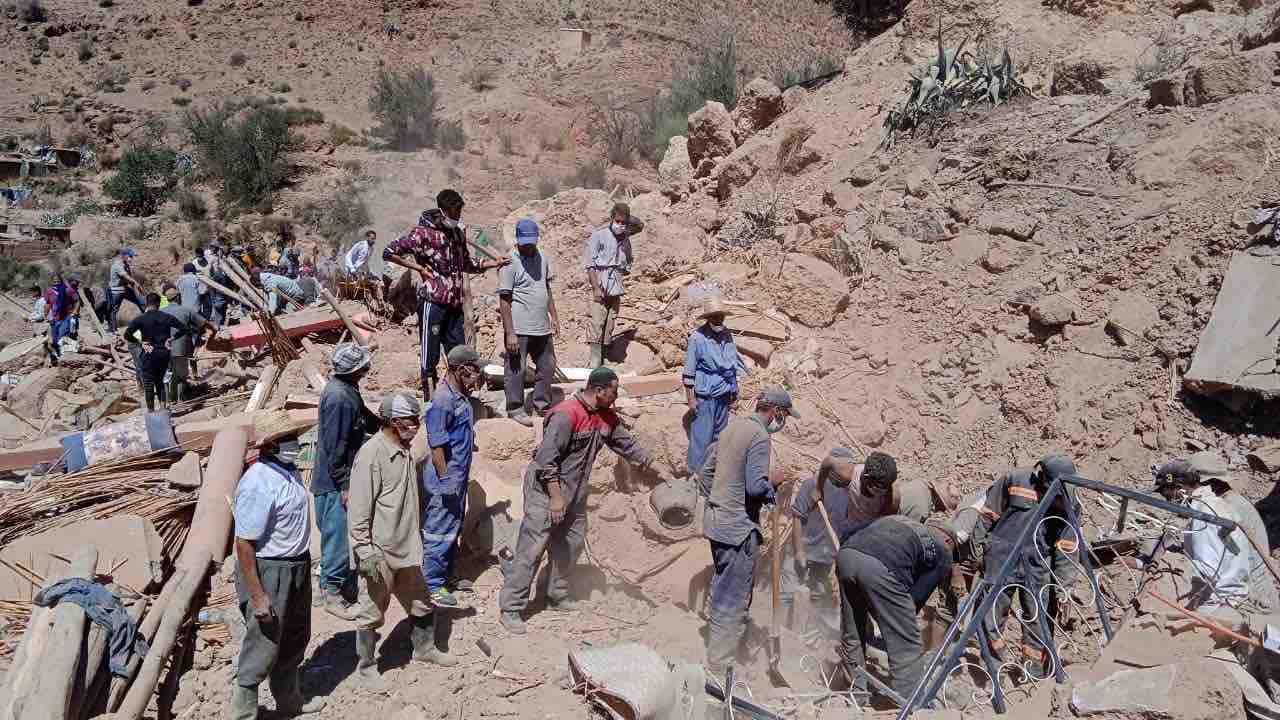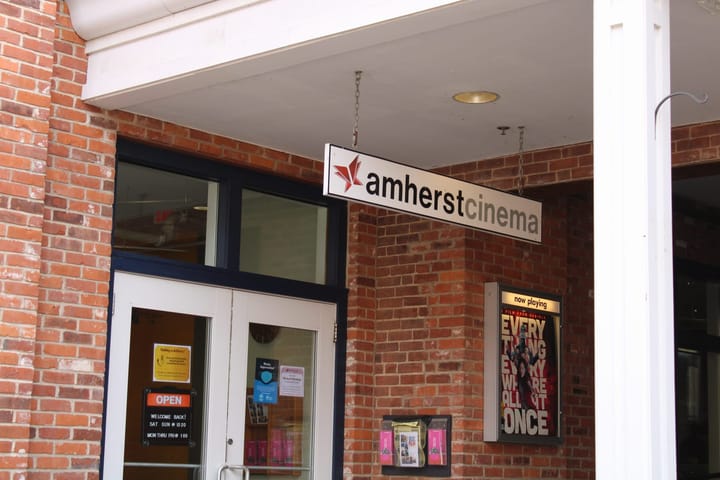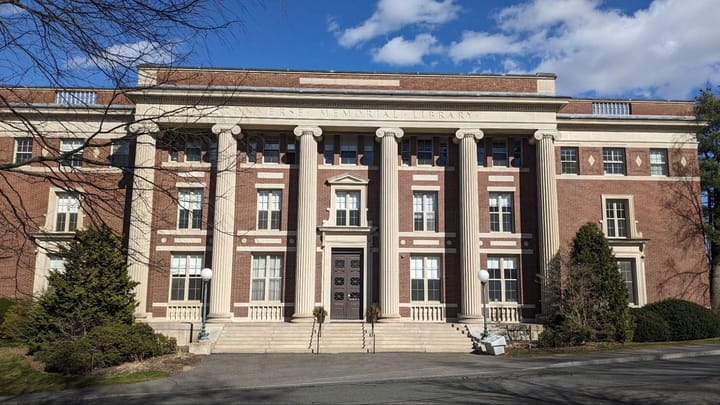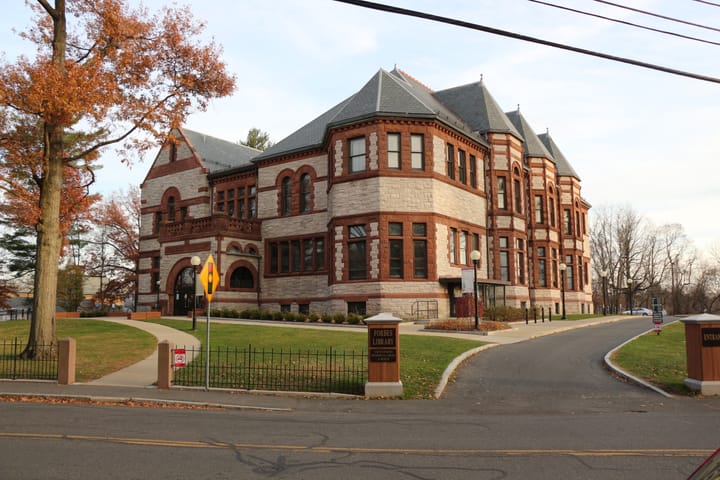Moroccan Community Responds to Earthquake
Following a 6.8 magnitude earthquake in Morocco that left nearly 3,000 people dead, Moroccans at Amherst and in the broader Western Massachusetts community are grappling with the earthquake’s lasting impact.

As evening fell in Florence, Massachusetts, on Sept. 8, Hamid Id-Abdella received a call from his sister in Casablanca, Morocco. The country’s largest city had felt the tremors of an earthquake, and people had streamed out of buildings onto the street. Soon he would learn that the epicenter of the earthquake was near Chafarni, the mountain village where another sister and her family lived.
Struggling against poor cell service, Id-Abdella eventually reached his brother-in-law, who had “miraculously” survived the collapse of the family’s house. Id-Abdella’s sister had not been so lucky. She and her two small children had been trapped inside the collapsing house. Their bodies would not be recovered for another three days.
In an interview with the Student, Id-Abdella was often lost for words as he thought back on those days.
“You hear about catastrophes and disasters,” he said. “But when it actually hits home, when it’s a family member ... it’s not easy to put your emotions into words.”
Id-Abdella was born in Taouzent, a small town in the southern foothills of Morocco’s High Atlas Mountains. Fifteen years ago, at the age 23, he immigrated to the United States. He, his wife, and his son now live in Florence, just west of Northampton, but the rest of his family remains in Morocco.
The earthquake was of magnitude 6.8, the largest recorded in Morocco in more than 100 years.
It lasted for around 20 seconds and left close to 3,000 dead and more than 5,000 wounded. The earthquake leveled entire mountain villages and damaged historic buildings in nearby Marrakech. Overall, the World Health Organization reported that more than 300,000 people and 100,000 children have been affected.
Id-Abdella’s story has been shared widely throughout the Western Massachusetts Muslim community, including being posted to the WhatsApp group for the Hampshire Mosque, where the Muslim Students Association (MSA) often attends prayers.
Zakaria Shenwari ’25 saw these messages and subsequently shared Id-Abdella’s fundraiser in MSA’s GroupMe.
Though no Amherst students were as close to the tragedy as Id-Abdella, those with family connections to Morocco described similar feelings of shock and grief in the earthquake’s aftermath.
Khadija Doha ’27 is from Fort Lauderdale, Florida, but the majority of her family lives in Casablanca. The earthquake struck at the end of her first week of college classes. Though all her relatives remained safe, she, too, remembered frantic moments on that Friday night, as her family scrambled to ensure everyone was alright.
“I waited a while to hear back,” she said. “Anticipating was the worst part.”
Doha had been to Marrakech and had seen some of the historic buildings before they were damaged in the quake. The earthquake affected the old city, which dates back centuries and is a UNESCO World Heritage site. The 12th-century Koutoubia Mosque was damaged, as were the famous red walls that enclose the old city. The damage may have outsized economic consequences, because the area is highly reliant on tourism.
“I just can’t imagine how it looks now,” she said. “How do you build that up? How do you bring back the livelihood of the people?”
She said, over the past week, she has often felt hopeless, an ocean away from the suffering.
“I’m shocked every time I look at the videos and the pictures,” she said. “I’m reminded that I’m here and there’s nothing I can do.”
Like Doha, Zaki Alaoui ’24 was born in the U.S., in Milton, Massachusetts, but has family in Morocco.
Alaoui said that though stories like the earthquake will remain in the U.S. consciousness for just “three or four days,” he gets the sense from his family in Morocco that the problems on the ground will extend far into the future.
“What will this mean going forward for these historical sites that might have been affected, or the people who are displaced?” he asked.
Though Alaoui’s family in the country was not affected, he described being moved by stories like Id-Abdella’s.
“The familial aspect is something that’s so critical to the country’s core and our beliefs,” he said. “Understanding that this event is something that broke apart and will break apart families going forward is something that resonates with me.”
On campus, Alaoui said he was heartened by his friends checking in on him and his family after the earthquake.
“Yes, everyone’s okay,” he would tell them. “But understanding that I have that care in the community here, felt really good.”
Both Alaoui and Doha said they felt especially supported by their friends in the MSA.
Doha nevertheless said she wished there was more awareness of the events in Morocco among the student body as a whole.
“Outside of our little culture circles, no one knows,” she said.
Doha also said she was surprised there wasn’t more of a fundraising effort on campus.
“I was honestly expecting more, at least some form of activism,” she said. “How can I start that? I barely just got here.”
Everyone who spoke with The Student emphasized that the relief efforts in the country are ongoing and will require outside support.
Id-Abdella made it clear that coming back from a disaster of this size is no small task.
“People in these villages will need help, not just now but later on,” he said. “This could take months, if not years.”
After hearing about the loss of his sister and her children, Id-Abdella set up a GoFundMe page. The proceeds will go towards supporting the residents of his sister’s village, Chafarni, many of whom lost family members and houses. The money will also support Id-Abdella’s hometown of Taouzent, where his family and others have taken to sleeping under tents after their homes became unstable following the earthquake.





Comments ()